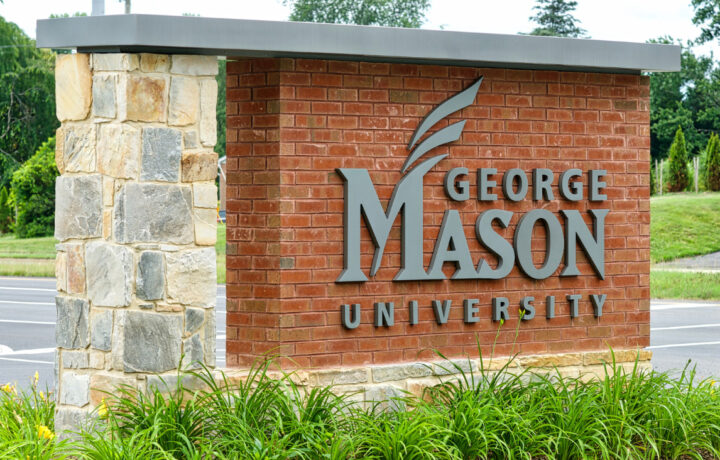The United States Air Forces Central (AFCENT) will be getting some research and development support from George Mason University, the largest public university in the Commonwealth of Virginia. This month, AFCENT formalized a partnership with the center of higher learning for joint research, rapid capability development, warfighter training, and education to support the mission readiness of the Ninth Air Force. The Educational Partner Agreement (EPA) was signed on July 14, at Mason’s Fairfax Campus by Mason Provost Mark Ginsberg and Lieutenant General Alexus Grynkewich, Commander, Ninth Air Force.
“Mason is committed to access to excellence in education and innovative student learning experiences, while providing cutting-edge breakthrough research and capabilities to address the nation’s greatest challenges more quickly, said Provost Ginsberg via a statement.
“This partnership will strengthen Mason’s unique approach to supporting our military professionals and provide the Air Force access to the world-class thought leadership of the largest, most innovative public research university in Virginia,” Ginsberg added. “This model of shared research and curriculum development with the Air Force opens opportunities for additional collaborations with public and governmental organizations.”
Through this partnership, the airmen of the Ninth Air Force will be provided access to the public research university’s academic programs that are now offered from its School of Business and College of Engineering and Computing, including its specialized graduate and PhD programs. In addition the AFCENT airmen will have access to applied research and development programs with the Volgenau School of Engineering’s national security and defense teams at Mason’s Rapid Prototyping Research center, along with digital transformation efforts coordinated through Mason’s Institute for Digital InnovAtion.
“We’re very thankful for this partnership with George Mason, where we see tremendous opportunities for collaboration, thinking creatively and building a culture of innovation,” Grynkewich said.
Building the Relationship with the Air Force
The public university’s relationship with the United States Air Force has expanded since last year, and the school has collaborated with the service to become a data-centric organization through delivery of customized data-driven decision-making and senior leadership programs, which are now executed by School of Business faculty and Executive Development teams.
“By December of 2022, the success of the relationship sparked interest in expanding to a formal partnership with Mason across multiple disciplines,” explained Lt. Col. Chaz LeDeatte, chief technology and data officer.
“As the most diverse and innovative university in the commonwealth, Mason is meeting today’s needs and inspiring future insights of public and private sector organizations,” added School of Business Dean, Ajay Vinzé. “By providing multiple pathways for all students, Mason is fueling success in both the public and private sectors. As a highly ranked university for business analytics, this collaboration will provide direct impact and a transformative experience for the men and women of the Ninth Air Force and beyond.”
Expanding the Efforts
The Air Force announced that leaders from George Mason’s School of Business, the Volgenau School of Engineering and the Institute for Digital InnovAtion have now begun working with AFCENT warfighters and senior leaders to design research and curriculum.
These now include programs in innovation and creativity, digital transformation, applied research in systems engineering and integration, program management and military transition of advanced technologies.
“Collaboration efforts will prioritize refining our digital education program, freeing the data, digital and unmanned tech operational validation, and making our air bases more efficient and effective,” said Lt. Col. LeDeatte.
In addition, George Mason University and USAFCENT will collaborate on a number of projects related to accelerating the digital capabilities in areas to include digital transformation, cyber security and resiliency, sensor fusion and anomaly detection, predictive analytics, systems engineering, and 5G and data analytic capabilities at the battlefield edge. It will also focus on advances in robotics, autonomous vehicles, smart cities and unmanned aerial systems (UAS), among other collaborations.
Originally founded in 1949 as a Northern Virginia regional branch of the University of Virginia, the school was renamed in honor of Founding Father George Mason in 1959. It became an independent university in 1972, and it has grown into the largest public university in the state. It currently operates four campuses and one retreat-conference center in Virginia – while the flagship campus is in Fairfax.
George Mason University currently enrolls nearly 40,000 students from 130 countries and all 50 states. The school has grown rapidly over the past half-century and is recognized for its innovation and entrepreneurship. In 2023, the university launched Mason Now: Power the Possible, a one billion dollar comprehensive campaign to support student success, research, innovation, community, and sustainability.



